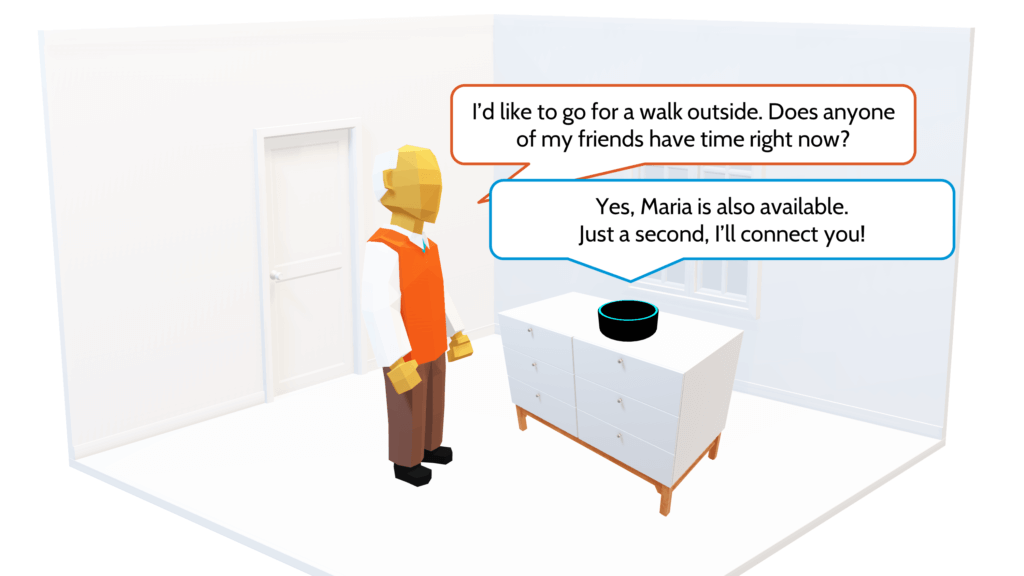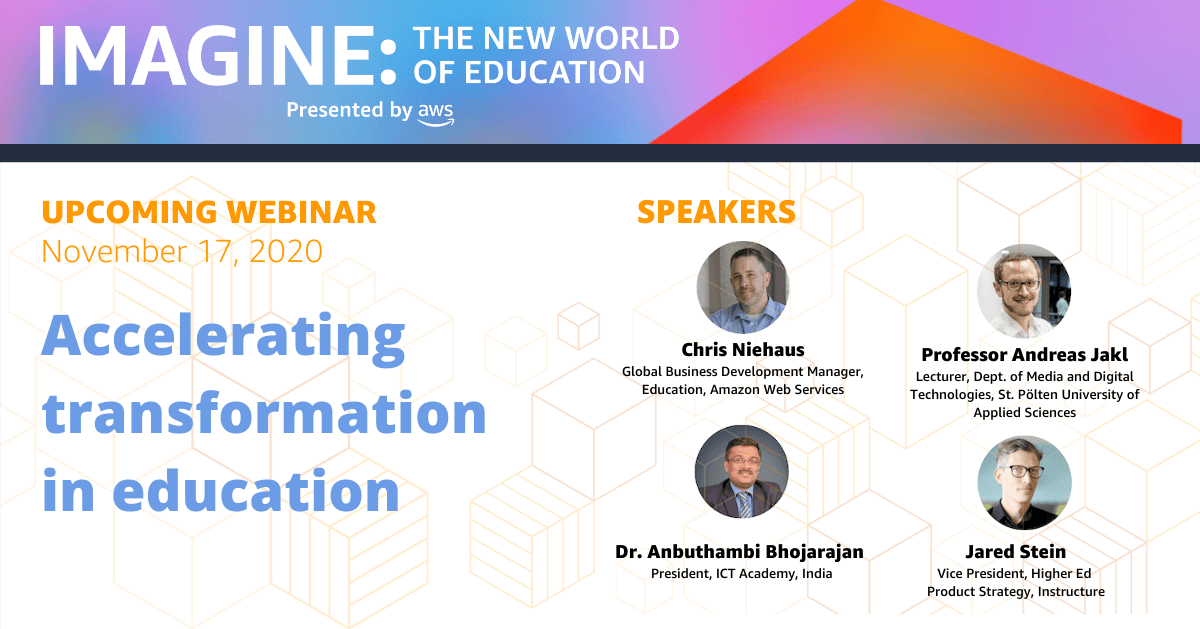As an unexpected catalyst, the COVID-19 pandemic drove rapid change in global education, including improved accessibility for some, affordability, and curricula aligned with job skills needed for the modern world.
Of course, cloud technologies play a fundamental role in the new world of teaching. In the global panel session by AWS, I’ll share insights about:
- How remote students can solve a real-life wellbeing problem with a working prototype in just 10 days.
- How learning and retention can be improved through the open-source Voice Learning Alexa skill.
Virtual Hackathons & Student Motivation
With increased online lectures, discussions amongst students get more difficult. Lecturers get less feedback on the learning progress and the level of understanding.
Online lectures with larger groups tend to get monologues: educators are talking to an empty screen, while not all students keep their camera switched on. Thus, the engagement drops. Interactive elements like questions, quizzes and little team exercises help. But do these necessarily drive student motivation? That’s the main issue!
Therefore, the question is: how to re-think learning in an online-first mode? How to design a course by starting with the student’s motivation and then deciding on the contents and the format?

That was the approach how we designed the Alexa for Wellbeing Online Challenge. In the AWS panel session, you’ll hear some insights and learnings from this intensive 10-day period!
We managed to make learning more accessible and democratic: building Alexa skills was possible even for people who just had an idea they wanted to solve, but no technical background knowledge.
Learning & Retention Outside of the Screen
With distance learning, students spend most of their time in front of screens. Besides social effects, this also puts strain on the eyes. When sitting down for hours, you naturally get tired.
There is a theory of learning styles: e.g., visual, or auditory. To best approach all kinds of students, it’d be good to engage with multiple senses. This might be a myth , but we know that learners have different interests, backgrounds, and abilities.
On the other hand, there is evidence that the act of taking a test improves retention . Even if you don’t know the answers. This means that if you spend time on answering questions instead of studying, your short-term memory retention is slightly lower (= how much you remember after 5 minutes). But what you still know in long-term memory a week later is significantly higher!

I’ve applied these insights into the development of the Voice Learning Alexa skill. It can be used for courses at the St. Pölten University of Applied Sciences, as well as for employee training in a company.
In the AWS IMAGINE conference session, I’ll share some statistics of the beta evaluation, and how dynamic testing improves learning.
The most important take-away for using a smart voice assistant for learning: it allows learning while doing other tasks like cooking or housework.
AWS Imagine for Education Panel Session
In the panel session, you will also hear from a global panel with experts from India, Austria, and the United States. They will highlight opportunities to accelerate change in education with examples from around the world.
All Session Topics
- The complex challenges education leaders are facing today
- Solutions that address these challenges, including gamification, public-private partnerships, and educator mobilization
- The role cloud computing plays in enhancing student success
Click here to join the session for free!
About the AWS Imagine Conference
IMAGINE: The New World of Education, a global webinar series presented by Amazon Web Services (AWS), showcases education institutions and organizations that have innovated in the cloud to ensure that learners of all ages have access to the education, training, and resources needed to keep our world moving forward.
